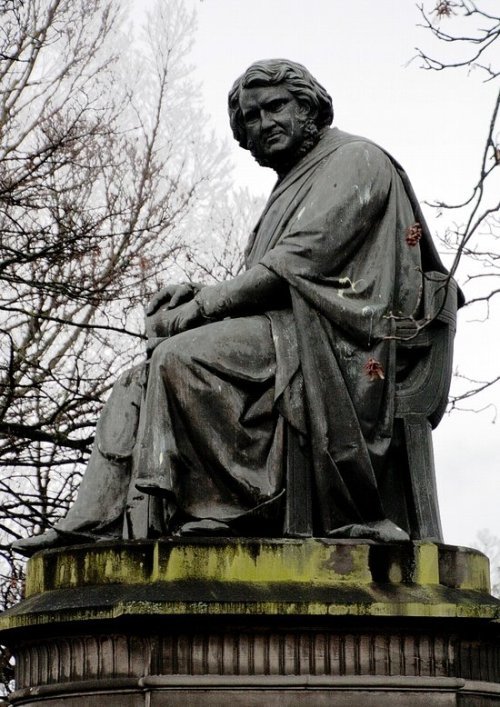May 6th 1870 Sir James Young Simpson, the Scottish physician, died.James was born the seventh son an
May 6th 1870 Sir James Young Simpson, the Scottish physician, died.James was born the seventh son and eighth child of poor baker on 7th June 1811 in Bathgate, West Lothian. He was apprenticed to his father, but spent his spare time working on scientific matters, and, thanks to a scholarship and help from his elder brother, he entered the arts classes of the University of Edinburgh in 1825, at the age of fourteen, an began the study of medicine in 1827.He studied under Robert Liston and received his authorisation to practice medicine – licentiate of the Royal College of Surgeons of Edinburgh – in 1830. He was then 19 years old and subsequently worked for some time as a village physician in Inverkip near Wemyss Bay on the Clyde. Two years later he returned to Edinburgh where he received his medical doctorate in 1832. The professor of pathology, John Thomson entrusted him with some lectures, and in 1835 he was made senior president of the Royal Medical Society of Edinburgh.Following hard efforts, Simpson in 1839 at the age of twenty-eight years, was appointed to the chair of obstetrics at the University of Edinburgh. Lecturing in obstetrics had been somewhat neglected at the university, but Simpson’s lectures soon attracted large numbers of students, and his popularity as a physician reached such proportions that he could soon count women from all over the world among his patients. Besides his activities as a scientist and teacher he had a very busy – enormous, really – practice.Simpson was president of the Royal College of Physicians in 1849, in 1852 he was elected president of the Royal Society of Edinburgh, and one year later was elected foreign member of the French academy of medicine. He received several honours and awards, in 1856 the golden medal from the Académie des sciences and a Monthyon prize. In 1847 he was appointed one of the Queen’s physicians for Scotland. In 1866 he was knighted and that year also became doctor of honour of law at the University of Oxford. In 1869 he received the freedom of the city of Edinburgh.That’s the qualifications out of the way, ordinarily this would be enough for any leading man of medicine to be remembered by, but Simpson was no ordinary man, let’s get down to the nitty gritty.Simpson combined intellectual brilliance with compassion. Distraught after witnessing the practice of surgery without anaesthesia, Simpson wrote of “that great principle of emotion which both impels us to feel sympathy at the sight of suffering in any fellow creature, and at the same time imparts to us delight and gratification in the exercise of any power by which we can mitigate and alleviate that suffering.”So he started working on ways to deviate the pain felt in the neglected world of obstetrics, namely childbirth. At first this seemed a forlorn hope. Simpson tried mesmerism, but the hypnotic method brought only limited results. After trying other medical means like ether he read about chloroform being used in dentistry and surgery in the US, yes it had been used before, but never in in his field, and it was he who pioneered it’s use. In these days religion played a big part in everyone’s lives, and the belief that women were meant to suffer pain in childbirth was the main argument against his work. It has been written there was a savage religious response, especially in Presbyterian Scotland, to his use of chloroform – in reality the attack on Simpson’s enthusiastic promotion of chloroform was brief, sporadic and of little moment. Simpson’s carefully constructed counter to criticism of anaesthesia, drawing on considerable theological and linguistic expertise, reveals a complexity at odds with the simplicity of his faith. Simpson was a great orator and by all means a charismatic man, his arguments for it’s used won over the vast majority of it’s critics, the rest, as they say, is history. I’m not one to usually member honours bestowed on people by royalty, but you have to admit in this case it was merited, In 1866 Simpson was the first man ever to be knighted for his services to medicine. -- source link
Tumblr Blog : scotianostra.tumblr.com
#scotland#scottish#physician#surgeon#obstetrician#pioneer#chloroform#medical history#history

